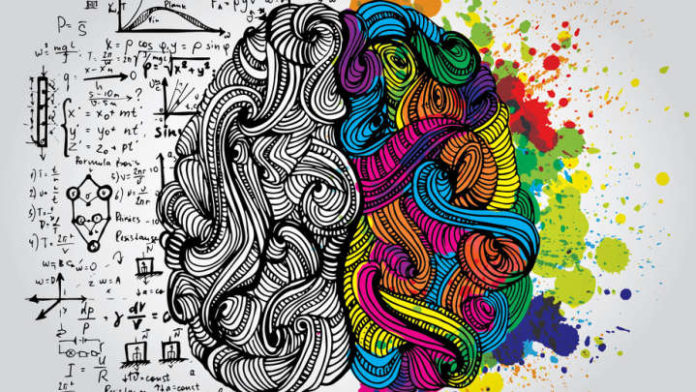Its that time of year again. The flower is on the trees, and university libraries and read rooms are heaving with students poring over laptops, textbooks and stacks of notes exam season is here.
Though the quality of teaching is arguably as good as its ever seen, and the subsistence students get in terms of online substance is brilliant, exams understandably make people anxious.
Of course, students have always felt pressure at exam hour, but things seem to be different these days thanks to increasing occupation tournament, more alumnus and higher levels of indebtednes from tuition fees.
To cope with this exam stress, it seems increasing numbers of students are turning to so called smart-alecky narcotics. Often referred to as nootropics from the Greek , noos( brain) and tropos( growing) they just chemicals intended to improve your mental powers.
Its easy to understand why students looking for an margin may turn to these substances to try and thump the tournament. And it seems to be that, for a lot of them, its only part and parcel of gaining a degree: a recent Europe-wide survey found that most British university students generally approved of the use of such performance enhancing narcotics for study.
Over in the US, as a result of student pressure, one university have in fact revised its honour code to recognise this spike in performance enhancing substance employ. The honour code is a set of rules or principles that govern the university community based on ideals that define what constitutes honest behaviour. And Duke Universitys revised code, makes it clear that use of prescription medication to enhance academic performance is not tolerated.
In the UK, there have also been calls for universities to be more aware of the problem. One survey found that more than 15% of Oxford University students took such narcotics without a prescription and similar levels are indicated nationwide. With a student population in excess of two million in the UK, this adds up to a lot of students potentially on smart drugs.
But students arent the only people taking nootropics. Office workers and city bankers are also reportedly applying smart narcotics to help boost productivity levels and allow them to work around the clock.
How do they operate ?
Some smart narcotics attain you more alert for longer. The first narcotics for this were amphetamine( Adderall) and methamphetamine, which were used by both sides in World War II for example by bomber pilots on long missions.
Essentially, amphetamines operate by affecting the freeing and re-uptake of the neurotransmitters dopamine and norepinephrine. These help to regular your mood and behaviour and they can become addictive.

Methylphenidate a modified amphetamine which is more widely known as Ritalin is used to treat attention deficit hyperactivity disorder( ADHD) in children. But it is also taken by people wanting to enhance their performance. And its even been claimed that some students have learned the symptoms of ADHD to con doctors into prescribing it.
Ritalin increases dopamine levels, especially affecting neurons in the prefrontal cortex a part of the brain involved in attention and decision making as well as controlling your impulses.
But applying it can have long-term consequences, including disrupted slumber, increased risk-taking behaviour and weight loss. It can especially affect young people, whose brains are still developing.
The narcotic of option
One of the more popular smart narcotics is Modafinil which likewise goes under epithets like Provigil. Though it is not an amphetamine, it also increases dopamine levels and so has potential for abuse.
A 2013 study concluded that Modafinil can improve alertness and motivating when taken as a performance enhancer. But it was actually developed to treat narcoleptics and sufferers of shift operate sleep disease symptoms of which include excess sleepiness, alongside insomnia and sleep that feels unrefreshing or insufficient so it was never intended to be taken in this way.
A European Medicines Agency investigation has also concluded that it should not be used by people with uncontrolled, moderate to severe hypertension, or by patients with cardiac arrhythmia. It was additionally shown that there were significant risks of skin and hypersensitivity reactions in children.
Stick to coffee
Of course, you could argue that we drink coffee for alertness, so whats incorrect with using smart narcotics to devote us that margin? And if some professionals, like soldiers and airmen, perform better when they receive a drug, why not other professionals, such as doctors after all “were having” cosmetic surgery, so why not cosmetic neuroscience?

![]()
But the wider issue is that the long-term effects of taking these brain altering narcotics in this non-prescribed style are still comparatively unknown. The only thing we do know for certain is the addictive element of amphetamines so the possibilities are that if youre taking these types of drugs, you will want to, and need to, take more and more to get the same effects.
For people who buy these narcotics online, there are currently extra risks, because applying an unknown supplier is very unsafe. Quality control is uncertain and you dont know what you are actually getting or taking or what the potentially adverse side effects is likely to be. Overall then, the added benefit of smart narcotics dont outweigh health risks so its probably best to only stick to the coffee instead.
Simon Cotton, Senior Lecturer in Chemistry, University of Birmingham
This article was originally published on The Conversation. Read the original article.
Read more here: http :// www.iflscience.com



